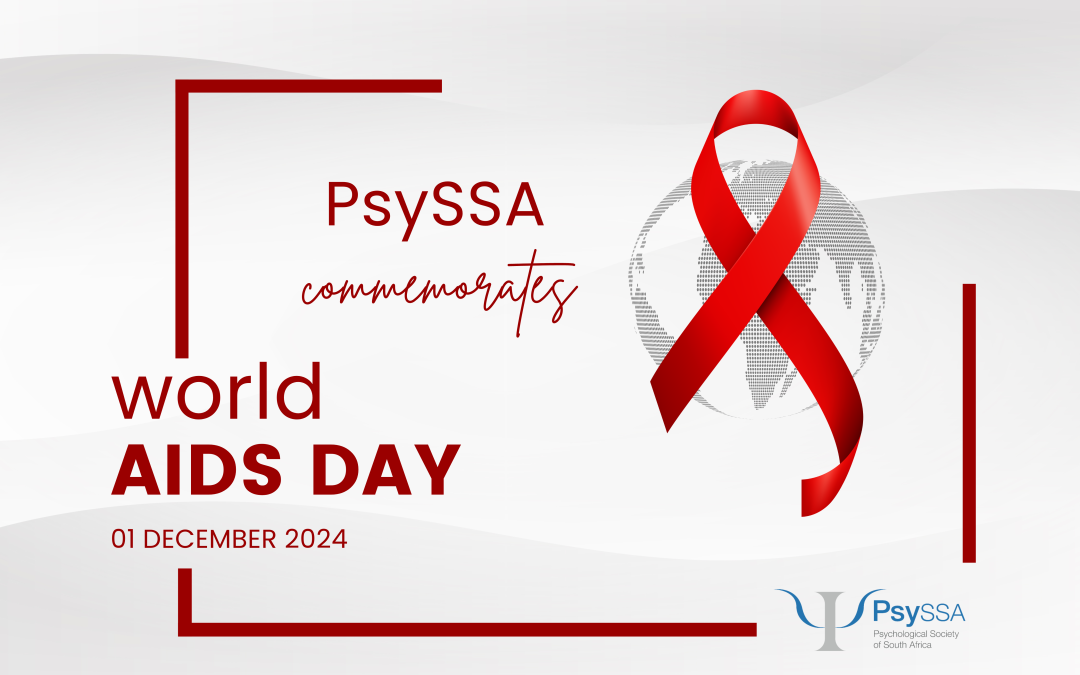
HPSIG Podcast: Fatherhood and high-risk pregnancy
EPISODE 26
HPSIG Podcasts
HPSIG Podcast: Fatherhood and high-risk pregnancy
HPSIG Podcast: Fatherhood and high-risk pregnancy




Many hoped that the lifting of apartheid would herald a better future for the majority of women in South Africa, easing their struggles and opening pathways to equality. Unfortunately, this has not been the case. Many women remain excluded from the social, political and economic mainstream, grappling daily with the persistent threat of violence and abuse. The government, once a symbol of liberation, has often fallen short in addressing their oppression.
As South Africa embarks on its annual campaign against violence towards women and children, we must confront the shadows and vestiges of our nation’s history. This painful legacy has profoundly shaped gender dynamics in contemporary South Africa and continues to fuel the cycles of violence that plague our society.
South Africa continues to grapple with unacceptably high levels of violence, including domestic abuse, sexual assault, intimate partner aggression, femicide, workplace harassment, and digital abuse. These forms of violence are compounded by the pervasive injustices and exclusions inherent to systemic inequality. To address this, we must necessarily and actively challenge dominant colonial, gendered, and violent discourses while fostering counter-narratives that amplify the voices and actions of survivors and their communities, enabling resistance, agency, solidarity, and healing, while supporting multi-pronged anti-violence initiatives that include inter-sectoral collaboration, community-based involvement, and the privileging of knowledge systems and practices deemed meaningful and appropriate by communities themselves. It is through such comprehensive and inclusive efforts that we can hope to dismantle the violence that perpetuates harm and work towards sustainable, transformative change. It is equally vital for us in South Africa to forge partnerships and draw lessons from other critical and liberatory movements across the continent and globally in the fight against gender-based violence. Simultaneously, we call for genuine socio-economic liberation that disrupts the entrenched status quo, where women and children disproportionately bear the brunt of poverty, inequality, and multiple intersecting disparities.
During the 16 Days of Activism, we are reminded that countless institutions and organisations dedicated to supporting women and children in distress are shutting their doors due to dwindling funding. These organisations continue to serve communities tirelessly, often without government support, remaining passionate advocates for change while facing immense financial challenges. It is therefore imperative that we support and pay tribute to these organisations that strive to serve women and girls and support their liberation from violence, oppression, and exploitation.
One such organisation is The Cradle of Hope in the West of Krugersdorp. For 18 years, this independent social upliftment and community development organisation, with its core focus on assisting women and children, has been a sanctuary and support hub for destitute, vulnerable, and abused women – many of whom are survivors of domestic violence, sexual trauma, or human trafficking. The Cradle of Hope provides a safe refuge for up to 30 women and their children, who come from all corners of South Africa. Many arrive in the dead of night, often with little more than the clothes on their backs, bearing physical and emotional scars, fearful and traumatised, where they are met with compassion, support, safety and care. With 15 active programmes, The Cradle of Hope directly impacts the lives of more than 2 000 marginalised adults and children every day, offering essential assistance to those in desperate need. More than just a shelter, it is a space of compassion, love, kindness, and care, dedicated to rebuilding lives and fostering futures rooted in healing and agency.
To learn more about The Cradle of Hope and explore ways to support their vital work, please visit their website at www.thecradleofhope.org, call their offices at 076 262 0452, or email them at information@thecradleofhope.org.
BE THE DIFFERENCE!

If you talk to just three children and three women in South Africa, you are highly likely, statistically speaking, to come face-to-face with gender-based violence (GBV). Long after the six conversations, two survivors and those close to them will be living with the impact of GBV, while the perpetrators reoffend, unchallenged and unchanged.
GBV (violence perpetrated against any person based on their gender) can lead to Post Traumatic Stress Disorder, obsessive behaviour, compulsions, anger, antisocial behaviour, anxiety, stress, depression, dissociation, self-injury, body issues, gastro-intestinal issues, somatic complaints, substance abuse, relationship issues, sexual difficulties, and a host of serious physical and psychological disorders (Vorster, 2021).
Addressing the scourge of GBV does not lie with the one in three survivors, though they are a stark, statistical reminder that we are failing to tackle GBV. Health professionals are justified in supporting GBV survivors and, understandably, that is where the focus has been. However, helping the perpetrators of GBV is the best way to prevent GBV, and we have failed at this (Vorster, 2021).
Working with perpetrators of violence against women and children can be challenging, and prevention is complex. Perpetrators often have gender role strain issues, resorting to violence to cope with feelings of inadequacy (Baugher, 2015). Furthermore, violence against women and violence against children intersect, emphasising the need for collaborative efforts to address both (UNICEF, 2024). The definition and acceptability of what constitutes GBV also varies significantly across diverse cultures and contexts, underscoring the importance of culturally sensitive approaches in research, intervention, and prevention programmes (Perrin et al., 2019). Nonetheless, exposure to various forms of violence has adverse health outcomes for victims, regardless of cultural context (Rivara et al., 2019).
Interventions based on “naming and shaming” perpetrators may not be effective in reducing violence or enhancing safety for women and children. Arguably, isolating perpetrators (as opposed to reintegrating them) can reinforce negative self-perceptions and perpetuate violent behaviour. In contrast, approaches that focus on holding perpetrators accountable in a way that encourages rehabilitation and offers alternative, non-violent models of behaviour are more promising when it comes to prevention (Camp, 2019).
What will it take to create a world free from violence towards women and children?
Effective prevention requires multi-sectoral approaches, community involvement, and long-term strategies; addressing underlying social drivers like gender inequality, harmful societal norms, and patriarchal values; psychological health interventions, parenting programmes for perpetrators, and reducing reoffending; and policy changes, systemic thinking, and system-wide interventions (Fernández-Conde et al., 2024).
The 16 Days of Activism against Gender-Based Violence annual international campaign kicks off on 25 November, the International Day for the Elimination of Violence against Women, and runs until 10 December, Human Rights Day. This year’s campaign theme is UNITE! Invest to prevent violence against women and girls. The campaign calls on citizens to show how much they care about ending violence against women and girls by sharing the actions they are taking to create a world free from violence towards women. This year’s campaign also calls on governments worldwide to share how they are investing in gender-based violence prevention.
There is #NoExcuse.

“Take the rights path: My health, my right!”
This special edition of the DRM podcast, hosted by Associate Professor Bronwyne Coetzee of Stellenbosch University, in partnership with the Psychological Society of South Africa’s Division for Research and Methodology, commemorates World AIDS Day 2024. The discussion emphasises this year’s theme, “Take the Rights Path: My Health, My Right!” and the critical role of human rights in ending HIV. In this podcast Prof Coetzee is joined by Prof. Stephan Rabie an Associate Professor and Chief Research Officer in the HIV Mental Health Research Unit in the Department of Psychiatry and Mental Health at the University of Cape Town, an expert in mental health and HIV. In the podcast they discuss the intersection of HIV care and mental health, discussing the necessity of integrated support systems and Prof Rabie’s groundbreaking upcoming programme of work on suicide prevention among adults living with HIV in South Africa. As we observe World AIDS Day 2024, it’s important to remember and recognise that protecting everyone’s health is intrinsically linked to protecting everyone’s rights.
Useful resources: https://www.who.int/campaigns/world-aids-day/2024
Calls to action: https://www.who.int/campaigns/world-aids-day/2024/calls-to-action
Prof Stephan Rabie in conversation with Prof Bronwynè Coetzee
Stephan Rabie is an Associate Professor and Chief Research Officer in the HIV Mental Health Research Unit in the Department of Psychiatry and Mental Health at the University of Cape Town. The majority of his research has been devoted to developing and implementing mental health interventions in diverse settings. His research focuses on the intersection of mental illness and chronic conditions, with specific focus on HIV and behavioural adherence. He has provided academic oversight and managed several interventions focusing on HIV, substance use, sexual trauma, sexual and reproductive health, and community-based healthcare. He currently holds an Emerging Global Leader Award from the Fogarty International Center, focusing on the development of a suicide prevention intervention among people with HIV in South Africa.

On this day we pledge to reaffirm that health is not a privilege, but rather is a fundamental human right. We call for the uncompromising commitment to ensuring that everyone regardless of demographic identity has access to the care, treatment and support that they not only deserve but are entitled to as a right enshrined within the constitution of South Africa.
HIV/AIDS continues to affect millions around the world; however, it is only through the dismantling of the stigma which too often hinders progress, that we will be able to offer the respect for their autonomy; to ensure their equitable access to prevention and treatment that they require. On this day, we reflect that our health is a right, rather than a luxury. The access to healthcare, education, and support systems are crucial for breaking the cycle of transmission and promoting a world where people living with HIV can thrive.
As we honour those affected by HIV, let us commit to fostering a society where everyone can walk the path of health with dignity, security, and the freedom to make their own choices.


It’s official—membership for 2025 is now open, and we’ve got a deal you can’t miss!
Register or renew now and lock in 2024 rates before the year ends. You’ll only pay the increased rate in 2025!
Don’t wait—this Black Friday special ends 31 December 2024.
Be part of something bigger by joining one (or more!) of our 15 specialised divisions.
Exciting News! Our new Artificial Intelligence Division (AID) is here—perfect for members interested in the intersection of psychology and cutting-edge tech.
Benefits of joining a PsySSA division:
✔️ Connecting with like-minded professionals
✔️ Gaining exclusive insights and resources
✔️ Helping shape the future of Psychology
Find your fit and make your mark!
Unlock a host of exclusive benefits as a PsySSA member in 2025:
Special Rates: Register or renew now and lock in 2025 before 31 December 2024.
Directory Access: Professionals in private practice get a free listing in the newly renovated PsySSA Directory of Psychology Practitioners, with regular referrals included!
Low-Cost Indemnity Insurance: Access exceptionally low-cost professional indemnity insurance tailored to your needs.
Free CPD Resources: Unlimited access to PsySSA CPD webinars and PsyCPD journal-accredited platforms at no extra cost.
… and much more!
Exclusive offer for PsySSA members:
10% off all BWRT® courses for 2025, including Level 1 and Level 2. Combine this with early bird discounts for up to 20% off on all 2025 courses!
PsySSA members enjoy a 15% discount on online workshops with the Institute for Cognitive and Behavioural Therapies and the South African DBT Institute, as well as exclusive early bird rates for all in-person collaboration tours.
Don’t miss out on these exceptional benefits—be part of PsySSA’s thriving community and enhance your professional journey!